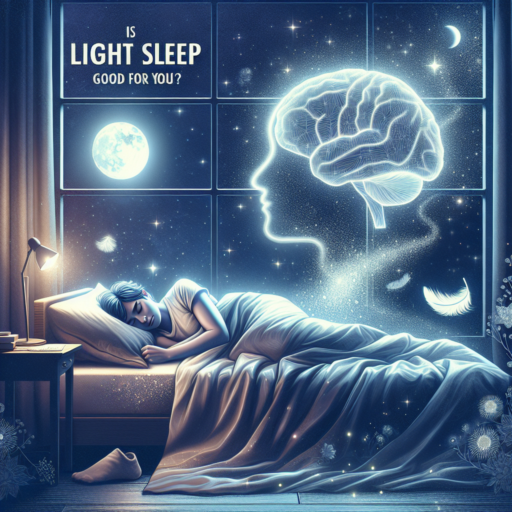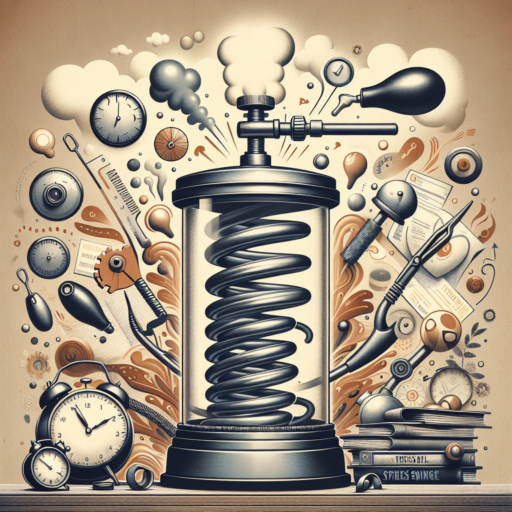Is light sleep as good as deep sleep?
Exploring the complex realm of sleep, it’s crucial to understand the differences between light sleep and deep sleep, and their contributions to our overall health. While these stages serve different functions, determining which one is ‘better’ might not be the right question. Instead, appreciating how both complement each other reveals the mosaic of human sleep patterns.
Functions of Light Sleep
During the light sleep phase, which encompasses Stage 1 and Stage 2 of the sleep cycle, your body begins to relax, with a decrease in temperature, heart rate, and breathing rate. This stage serves as a buffer, easing the transition to deep sleep and playing a critical role in cognitive functions such as memory consolidation and learning. It’s a period of easy arousal, which means you can wake up from this stage feeling less groggy.
Benefits of Deep Sleep
Deep sleep, primarily known as slow-wave sleep, is the most restorative stage. It’s during this phase that the body repairs tissue, builds bone and muscle, and strengthens the immune system. Deep sleep also facilitates the consolidation of emotional memories and the processing of new information. Lack of deep sleep can have significant impacts, including increased stress, mood swings, and impaired cognitive function.
Understanding the unique benefits and functions of both light and deep sleep stages suggests that they are not in competition but rather are complementary components of a healthy sleep cycle. While deep sleep is crucial for physical restoration, light sleep prepares the mind for learning and memory retention. The key lies in achieving a balanced sleep cycle that includes both stages, catering to our complex physiological and psychological needs.
How long should you stay in light sleep?
The duration one should spend in light sleep varies significantly among individuals, depending on several factors such as age, overall health, and lifestyle. However, understanding the role of light sleep in the sleep cycle can offer insights into the ideal amount of time to spend in this phase.
Light sleep acts as a transition period between wakefulness and deeper stages of sleep, including REM sleep. It is crucial for memory consolidation, cognitive function, and preparing the body for deep sleep. While there is no one-size-fits-all answer, health experts suggest that, on average, light sleep should constitute 50-60% of your total sleep time. Considering an adult typically requires 7-9 hours of sleep per night, light sleep might ideally range from 3.5 to 5.4 hours.
The significance of monitoring your sleep stages cannot be overstated. Tools and devices like smartwatches and sleep trackers can aid in understanding individual sleep patterns, including the time spent in light sleep. Adjusting your sleep habits and environment may optimize the duration of light sleep, thereby enhancing overall sleep quality and health.
No se han encontrado productos.
How much light REM and deep sleep is normal?
Understanding the different stages of sleep is crucial for recognizing what constitutes a healthy sleep pattern. Among these stages, light sleep, Rapid Eye Movement (REM) sleep, and deep sleep play integral roles in our overall well-being. Each stage serves specific physiological and psychological functions that are essential for restorative rest.
Light Sleep: The Foundation
Light sleep serves as the transition phase between wakefulness and deeper stages of sleep. It is characterized by slower brain waves and heart rate. Adults typically spend 50-60% of their sleep time in this stage. It plays a pivotal role in brain detoxification and preparing the body for deep sleep.
REM Sleep: The Dream Phase
REM sleep is known for being the stage where most dreaming occurs. This phase is critical for memory consolidation, emotional regulation, and learning processes. On average, adults should aim for 20-25% of their sleep in the REM stage. A disruption in REM sleep can lead to cognitive impairments and emotional difficulties.
Deep Sleep: The Ultimate Restorer
Deep sleep is the most rejuvenating stage, during which the body repairs tissues, builds bone and muscle, and strengthens the immune system. It constitutes about 13-23% of sleep in adults. Achieving sufficient deep sleep is key for physical health and energy recovery.
What happens if you only get light sleep?
Getting primarily light sleep, as opposed to deeper sleep stages, can significantly impact your health and well-being. Light sleep, while an integral part of the sleep cycle, does not provide the same restorative benefits as deeper phases like deep sleep and REM sleep. One of the primary effects of experiencing predominantly light sleep is a decline in mental functions. Individuals may find it difficult to concentrate, solve problems, and recall information. This cognitive impairment is because the brain utilizes deep sleep to consolidate memories and repair neural pathways.
Physiologically, the lack of deep and REM sleep can also lead to a weakened immune system. During deep sleep, the body releases cytokines, which are proteins that help the immune system fight off infections and inflammation. With a predominance of light sleep, production of these protective cytokines decreases, making the body more susceptible to illnesses. Moreover, hormonal imbalances can occur, impacting systems such as appetite regulation. Individuals might experience increased hunger and cravings for high-calorie foods, contributing to weight gain and the associated health issues.
Moreover, experiencing mostly light sleep can affect emotional well-being and mood. Studies have shown that inadequate deep sleep is linked to an increased risk of developing mood disorders, such as depression and anxiety. The lack of restorative sleep disrupts the brain’s ability to regulate emotions, leading to increased stress and irritability. Furthermore, this sleep insufficiency might exacerbate symptoms in individuals already suffering from mood disorders, creating a challenging cycle of sleep disturbances and emotional difficulties.




